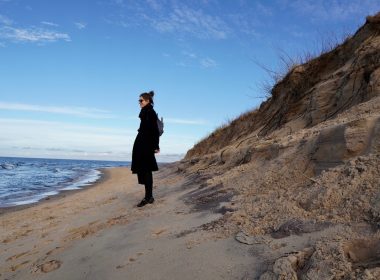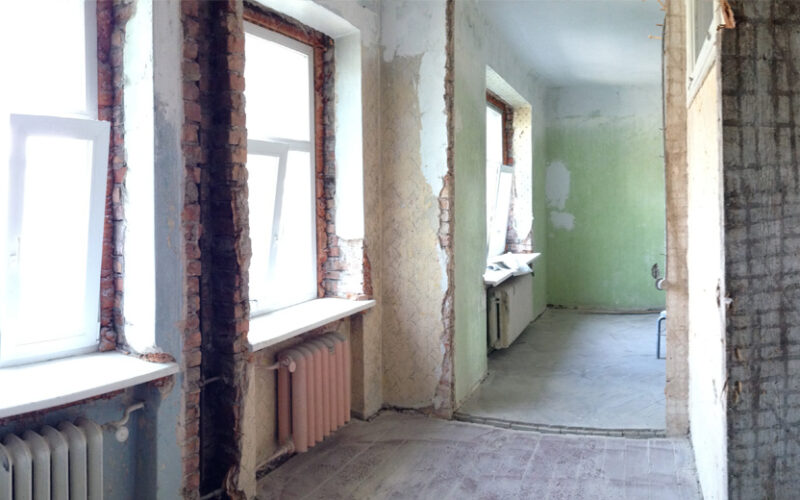Buying property in Latvia. Or things that I’ve learned while trying to find my ideal property in Riga and buying it. No one property purchase is ever quite the same and purchase agreements vary greatly, so be advised this is not a foolproof guide! However, I do believe this information will come in handy to anyone who felt as lost as I did when I faced the property hunt and the legal maze that followed.
Let me start by explaining how I went about buying property in Latvia.
- I set my wish list in April 2013 – central Riga, 80-110m2, 3-4 rooms + kitchen and bathroom, pre-war era building, period features intact (think original parquet floors, high ceilings, cornices, original fireplaces), unrenovated, secure and clean stairwell, 3rd floor or higher, building in decent shape, avoiding loud and busy streets like Brīvības, Čaka and Avotu.
- I determined a realistic price range having considered average market prices per m2 in central Riga (which are a lot higher than elsewhere in Latvia. I sob when I think how much more bang for buck I would have gotten somewhere like Cēsis).
- I spent hours scouting for property on SS.lv, City24.lv and real estate agency websites.
- I went to see 12-15 apartments and turned down many more that were offered to me by pushy, ignorant and even rude real estate agents because they hadn’t given any consideration to my wish list.
- I found my dream apartment, made an offer that got rejected, offered the asking price, signed the purchase agreement in December, secured ownership in the land register and got the keys in March 2014.
Old Building vs New Build
I had my reasons for wanting to buy an apartment in an old building rather than a new build. Firstly, I tend to feel claustrophobic in buildings with low ceilings which new builds always seem to have. Secondly, I love buildings with character – a shiny new laminate floor can never look as good as a lovingly restored 80-year-old parquet floor. However, my main reason for avoiding new builds was their bad reputation.
Over the last few years, new builds have sprung up like mushrooms after rain and the building work is completed at a speed which is quite frankly alarming. After last year’s tragic supermarket collapse in the Riga suburb of Zolitūde, the media ran riot with stories of corruption in the building industry, so I chose to put my trust in the 1930s building industry. If the buildings have lasted this long, eh?
Renovated vs Unrenovated
Whether buying old or new property, you’ll have the choice between buying it renovated or unrenovated. I chose unrenovated because, this being my first property, I want to truly make it my own. Also, overseeing the renovation process I feel safer in knowing I can trust the quality of the materials used and the work itself. Buying a property that’s already been renovated, you could be compromising on quality and design.
Sadly, a lot of people don’t share my appreciation for original features and you tend to see many beautiful apartments stripped of any character by owners putting in horrendous false ceilings, archways instead of doors, plastic or laminate everything, an orange or pastel colour scheme and tacky furnishings. This is called an Eiroremonts (Ewww-roremonts more like). See here for examples. (Warning: terribly distasteful interiors. Not for the faint-hearted, or those with an underlying furniture-based medical condition.)
When it comes to new builds, to me, the renovated apartments tend to look too much like hotels and aren’t always designed to be practical.
The purchasing process
I didn’t rely on one real estate agent to find me my property, I phoned up whoever was responsible for the property when I saw something I liked online. When I’d made up my mind about the ideal apartment, I let the real estate agent know straight away and he advised I try to make a lower offer. Unfortunately, the seller rejected it, so I ended up settling for the asking price.
He sent the purchase agreement for consideration and I had a lawyer look through it and suggest a few amendments, some of which were approved by the seller. Signing the agreement was quick and took place at the notary’s office. For this, I needed to bring ID. Just over two months later (due to pirmpirkuma tiesības*), I headed back to the notary’s to get a nostiprinājuma lūgums**, a document I needed to be able to get the property signed over to my name in the land register. Again, this was a quick procedure that just required showing some ID and signing a document.
The land registry office on Ūnijas iela has recently been modernised and has a good queuing system in place, so I didn’t spend much time there but I did have to go more than once… My first time I was advised not to get the property signed over to my name because the seller had unpaid land tax which I would then have to pay in their place (since then I’ve heard this is never the case). Then, I got the seller to send proof of payment, headed back and paid the required fees of around 20 EUR to sign the property over in my name and got the bank details for transferring the state fee/tax***. The next time I visited was to pick up my deeds document. I then set up a meeting with the real estate agent at the apartment, we signed the pieņemšanas-nodošanas akts**** and I got the keys.
Soon after, I signed further contracts with the property management company and utility service providers.
Real estate glossary
* Pirmpirkuma tiesības – rights that allow for other owners of domājamās daļas to have first dibs on another apartment in the building if it goes on the market. Your purchase agreement will set out whether these rights apply in your case. If they do, there will be a 2 month period from the day of signing the agreement (or shortly thereafter) during which the other owners will be allowed to buy the apartment for the same price you bought it for. Your money will be returned! It is the responsibility of the seller to ensure these rights are offered in writing to the other owners. If they’re correctly offered and no one expresses an interest in exercising the rights during the 2 month period, your purchase is secure.
** Nostiprinājuma lūgums – prior to registering yourself as the new owner of a property at the Zemesgrāmata (land registry), you have to visit a notary and pay them to prepare the legal paperwork required to register the property in your name. The process takes all of five minutes for the customer and costs somewhere in the region of 100 EUR.
*** State tax/fee – on top of the cost of the property, bear in mind you have to fork out an additional 2% of the purchase value that will be pocketed by the state as a tax/fee. You’ll be instructed to pay this at the Zemesgrāmata.
**** Pieņemšanas-nodošanas akts – a legal handover document that the new owner signs before accepting the keys. It states that you as the new owner are aware of the state that the apartment is in and have no issues with it, and it lists meter readings so that you can sign over utilities in your name and only pay for them from the day you receive keys.
Zemesgrāmata – land registry. An important institution that will request lots of paperwork and money, and test your patience.
Domājamās daļas – if a building has no one single owner, it is likely divided into a certain number of shares (e.g. 100, 1000). Each individual owner of an apartment then owns a certain number of these shares, so, for example, your apartment could be 32/1000 but the neighbour’s larger apartment could be 56/1000. This means communal areas like staircases are shared and owners take joint responsibility over things like the roof and lighting in the stairwell.
Izpirkuma tiesības – rights that allow for other owners of domājamās daļas to buy the apartment off you up to 12 months after you signed the purchase agreement IF they can prove they were not offered to use the pirmpirkuma tiesības assigned to them by law.
NB! Please note, this is a personal account of my experience of buying property in Latvia in 2013-2014. I’m not a lawyer, nor can I recommend a lawyer, but I’m a big believer in sharing valuable insights, which might help others in similar situations.
—
Found this post insightful? Continue with Prices In Latvia!










